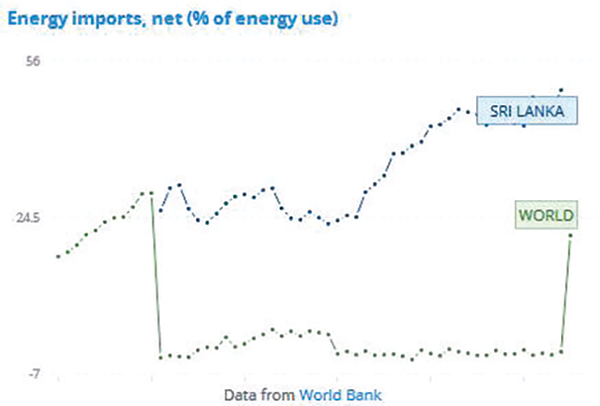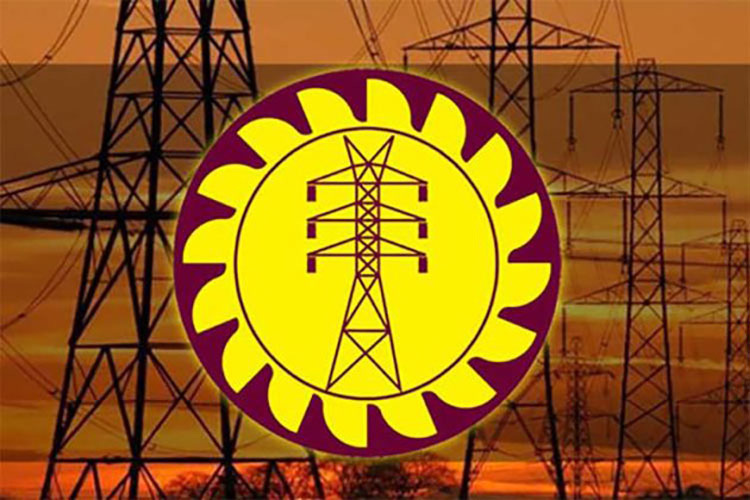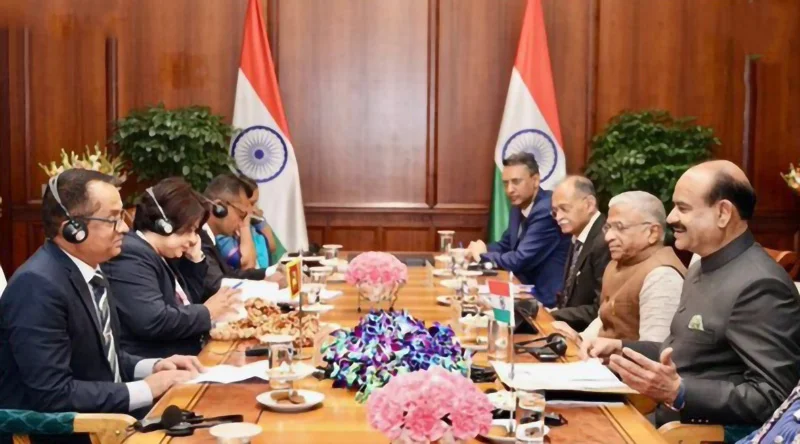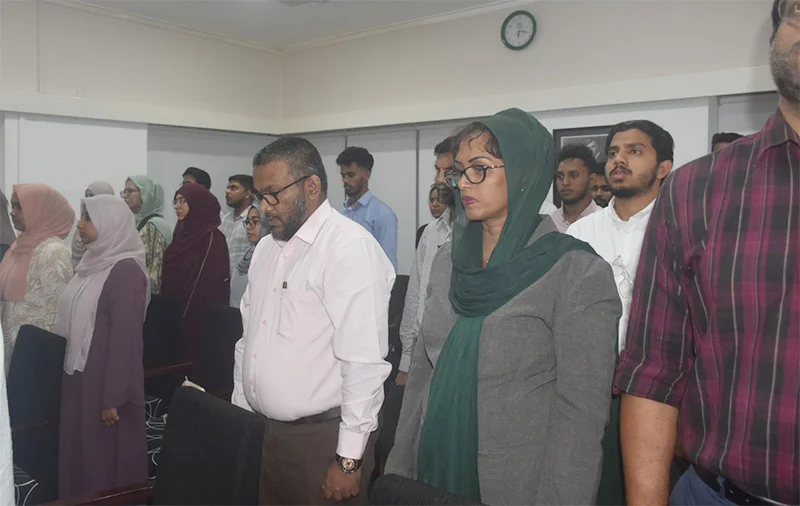News
Lanka can’t afford fossil fuels but can’t afford to get off them either

(climatechangenews)
Sri Lanka is in turmoil, with fuel and food shortages provoking citizens to storm the presidential palace and send Gotobaya Rajapaksa packing.Reliance on fossil fuel imports is a big factor in the economic crisis. Fuel prices spiking while tourism stayed in the doldrums led to the country running out of foreign currency, not helped by chronic fiscal mismanagement.
That same economic crisis is now making it harder than ever for Sri Lanka to develop a renewable industry, energy experts and business owners say.On 31 March, protesters marched on president Gotabaya Rajapaksa’s private residence. Things escalated until on 9 July, they stormed the presidential palace, prompting Rajapaksa to resign and flee to Singapore. He appointed an ally, Ranil Wickremesinghe, as his successor and this week a Sri Lankan official said Rajapaksa himself would return to the country, dampening hopes of substantive political change.
Sri Lanka’s economic crisis stems from consistently importing more than it exports. As the country pays in foreign currency (largely US dollars) for imports and sells in foreign currency for exports, its central bank’s foreign currency reserves have been depleting.The government didn’t have enough Sri Lankan rupees to pay for imports so prices of products, including essentials like food and fuel, shot up.
Between 1990 and 2000, Sri Lanka’s net energy imports as a percentage of total energy use doubled from 20% to 40% and has stayed around the same ever since. In 2021, the country spent $3.7bn on imports of oil and coal. Sri Lanka has no significant fossil fuel reserves. It does, according to the World Bank, have good potential for solar and wind power. Yet it has failed to develop either technology. It gets around a third of its electricity from imported oil, a third from imported coal and a third from domestic hydropower.
Lankan journalist Rathindra Kuruwita said this failure to develop renewables was largely the fault of the island’s state-owned monopoly utility provider, the Ceylon Electricity Board.
“Most of the engineers are in cahoots with the power plant mafia,” he said. This “mafia” is not an organised crime mob, but a network of people with a vested interest in fossil fuels: power plant operators, diesel distributors and coal importers.
The Sri Lanka Sustainable Energy Authority has also been slow in approving licenses for renewable projects, he said. If those projects had been approved, Kuruwita added, “we wouldn’t be in this mess”.
When an electrical engineer named Champika Ranawaka became energy minister in 2015, he tried to reform the CEB, Kuruwita said. He lasted eight months in the role.Now the country has run out of foreign currency to import the amount of fossil fuels its infrastructure needs. There are shortages of electricity, of cooking gas and of fuel for vehicles and for the diesel generators used as back-up power.
Before terrorist attacks in 2019 and the coronavirus pandemic, tourism provided 6% of Sri Lanka’s GDP. There were hopes it would rebound this year and bring in much needed foreign currency.But Nimesh, who works in the Atha resort in central Sri Lanka, told Climate Home that tourists are finding it hard to find vehicles to transport them as drivers are having to queue for days to get fuel.On top of that, small hotels and restaurants are suffering from power cuts. Larger hotels have generators but are finding it difficult to find fuel for them.
“These power cuts and fuel shortages are really affecting the tourism industry,” he said.
Lien Wysmans runs a backpackers’ hostel on Arugam Bay beach in the island’s east. She told Climate Home: “There are power cuts as well of about four or five hours a day… I’m freaking out”.
Although Wysmans says her guests don’t mind the power cuts, others are less tolerant. A March 2022 review for a beachfront Airbnb gives one star, citing “power cut- not their fault but created problem for us” among the reasons.A Financial Times reporter who visited the country recently said: “Anyone considering a trip to Sri Lanka this year or next also faces a difficult choice. Avoid the country entirely and the risk of a severely impacted and unexpectedly expensive trip, or support a vulnerable economy unduly impacted by the pandemic and poor management.”
Electric vehicles (with enough electricity) and rooftop solar panels would solve many of the tourist industry’s problems. But rolling them out requires money which most Sri Lankan citizens and their government don’t have.
Wysmans said solar panels “would be definitely a very good solution”. She can’t install them as she is renting the property but, even if she owned it, she said that the return on investment is 25 years. “It’s economically not beneficial for anybody because it’s just too expensive,” she said. “Also, the government is not really supporting.”
Nimesh said: “Solar panels are a great solution but the problem is government can’t afford to give financial support to invest in these projects due to the critical financial crisis that our country is facing”.
There are international schemes to help, like a Asian Development Bank funded scheme to provide low-interest loans for rooftop solar power. But these are on a small scale.
Speaking from her native Belgium, Wysmans said: “Sri Lanka has a really great opportunity for being a self-sustainable renewable energy island but the corruption is stopping all of it.”
“They’ve got the sun, they’ve got the water, they’ve got the wind, they just need to do it,” she added, “but if you have a corrupt government who wants to bring oil in where they can put half the money in their own pocket, it’s never going to happen.”
The Sustainable Energy Authority did not reply to a request for comment.
News
Power sector overhaul targets losses, debt and tariffs

Independent trade unions cry foul
The government has launched a far-reaching overhaul of the electricity industry, breaking up the Ceylon Electricity Board (CEB) into six fully state-owned companies, claiming to rein in chronic losses and mounting debt.
Under the Preliminary Transfer Plan, the newly incorporated entities, namely, Electricity Generation Lanka (Pvt) Ltd (EGL), National Transmission Network Service Provider (Pvt) Ltd (NTNSP), National System Operator (Pvt) Ltd (NSO), Electricity Distribution Lanka (Pvt) Ltd (EDL), CEB Employees Funds (Pvt) Ltd (CEBEF) and Energy Ventures Lanka (Pvt) Ltd (EVL), will take over the assets, liabilities and operations of the CEB from the appointed date.
Independent trade unions have opposed the restructuring programme.
At the core of the new model is the creation of an independent National System Operator, which will handle power system planning and competitively procure electricity from Electricity Generation Lanka, Independent Power Producers and non-conventional renewable energy developers. Power will be wheeled through the national grid operated by the NTNSP and sold to distribution companies.
Explaining the economic rationale, Eng. Pubudu Niroshan Hedigallage said the separation of functions was critical to restoring cost discipline in the sector.
“Electricity planning and procurement will now be carried out independently, based on least-cost principles. That is essential if we are to control generation costs and ease the upward pressure on tariffs,” he said.
Electricity Generation Lanka, though a successor to the CEB, will compete with private and renewable energy producers for projects, a move expected to curb inefficiencies and end guaranteed returns enjoyed under earlier arrangements.
“There will be no automatic allocation of projects. EGL must compete in the market like any other generator,” Eng. Hedigallage said.
According to officials, the Preliminary Transfer Plan provides for one generation and one distribution company initially, with further unbundling planned under the Final Transfer Plan to introduce sharper financial accountability at operational level.
Economists note that the restructuring is closely watched by multilateral lenders and investors, who have repeatedly flagged the power sector as a major fiscal risk.
The government has insisted that the reforms do not amount to privatisation, stressing that all six entities remain 100 percent state-owned. However, independent trade unions are of the view that what the government has undertaken is divestiture in all but name.
By Ifham Nizam
News
India, Sri Lanka speakers discuss technology-driven parliamentary innovation, including AI-enabled systems

Speaker of Lok Sabha Om Birla and Sri Lankan Speaker (Dr.) Jagath Wickramaratne recently discussed the possibility of expanding parliamentary cooperation through regular exchanges, formation of friendship groups, collaboration in policy and programme design and deeper engagement in technology-driven parliamentary innovation, including AI-enabled systems, real-time multilingual translation, and capacity building through Parliamentary Research and Training Institute for Democracies (PRIDE).
The discussion took place on the sidelines of the 28th Conference of Speakers and Presiding Officers of the Commonwealth (CSPOC) held in New Delhi recently.
The following is the text of the statement issued by the Indian High Commission in Colombo: ” Speaker of the Parliament of Sri Lanka (Dr.) Jagath Wickramaratne concluded his visit to India from 14-18 January 2026, for participation in the 28th Conference of Speakers and Presiding Officers of the Commonwealth (CSPOC) held in New Delhi. This was his first visit to India after assuming office. He was accompanied by Secretary-General of Parliament Kushani Rohanadeera and Assistant Director, (Administration) of the Parliament of Sri Lanka Kanchana Ruchitha Herath. Following the 28th CSPOC from 14-16 January 2026, Speaker and his delegation visited Jaipur, Rajasthan as a part of a two-day tour for CSPOC delegates from 17-18 January 2026.
The 28th CSPOC was inaugurated by Prime Minister of India Narendra Modi on 15 January 2026 at the Central Hall of Samvidhan Sadan, Parliament House Complex, New Delhi. Welcoming parliamentary leaders from across the Commonwealth, Prime Minister Modi highlighted the success of Indian democracy in providing stability, speed, and scale. He shared India’s efforts at giving voice to the Global South and forging new paths of cooperation to co-develop innovation ecosystems. He underlined the use of Artificial Intelligence by the Parliament of India to attract youth to understand Parliament. Prime Minister expressed his confidence in the CSPOC platform for exploring ways to promote knowledge and understanding of parliamentary democracy.
The conference, chaired by Lok Sabha Speaker Om Birla, convened 44 Speakers and 15 Deputy Speakers from 41 Commonwealth countries, along with representatives of four semi-autonomous Parliaments. The theme of the conference was “Effective Delivery of Parliamentary Democracy.” During the conference, participants addressed the role of Speakers in reinforcing democratic institutions, the integration of artificial intelligence in Parliamentary functions, the influence of social media on Members, approaches to enhance public engagement with Parliament, and measures to ensure the security, health, and wellbeing of Members and Parliamentary staff.
The visit marked a significant milestone in the evolving parliamentary partnership between India and Sri Lanka. Last year, two Parliamentary Delegations visited India for Orientation Programmes in May 2025 and August 2025 respectively. These visits, in line with the intent of the India – Sri Lanka Joint Statement on ‘Fostering Partnerships for a Shared Future’, further reinforce the strong democratic ethos and enduring friendship shared between the two nations.”
News
Pakistan HC celebrates academic achievements of Lankan graduates

The High Commissioner of Pakistan in Sri Lanka hosted a special reception on Friday (16) for Sri Lankan alumni who have recently returned from their studies in Pakistan. The event, held at the Pakistan High Commission, celebrated the academic achievements of the graduates and reinforced the deep-rooted educational ties between the two nations.
The Allama Iqbal Scholarship Programme, a flagship initiative launched in 2019, has become a vital pillar of bilateral cooperation. The High Commissioner highlighted that Pakistan offers 1,000 fully funded scholarships at graduate, postgraduate, and PhD levels, with over 500 Sri Lankan students currently pursuing their education in Pakistan’s premier universities.
“Sri Lanka and Pakistan share an enduring friendship rooted in a shared history of mutual respect and culture,” the High Commissioner remarked during the address. “Education is the key to unlocking the success of your brilliant futures and creating bonds that extend well beyond the classroom”.
Addressing the alumni as “custodians” of a noble cause, the High Commissioner urged the alumni to act as brand ambassadors by sharing their knowledge to guide deserving students toward academic opportunities in Pakistan.
He emphasised their responsibility to mentor young minds, ensuring no capable student misses the chance for a promising future. Furthermore, the alumni were encouraged to take an active role in organising frequent educational and cultural engagements to inspire and enlighten others while strengthening the ties between the two nations.
The High Commissioner emphasized that each graduate serves as a “bridge” between the two countries, playing a meaningful role in uplifting Sri Lanka while further strengthening Pakistan–Sri Lanka relations. The alumni were invited to remain closely connected with the High Commission to facilitate future initiatives that strengthen people-to-people ties.
The evening concluded with a traditional Pakistani dinner, where the alumni shared stories of their academic growth and cultural experiences in Pakistan in a spirit of friendship and togetherness.
-

 Editorial3 days ago
Editorial3 days agoIllusory rule of law
-

 News4 days ago
News4 days agoUNDP’s assessment confirms widespread economic fallout from Cyclone Ditwah
-

 Business6 days ago
Business6 days agoKoaloo.Fi and Stredge forge strategic partnership to offer businesses sustainable supply chain solutions
-

 Editorial4 days ago
Editorial4 days agoCrime and cops
-

 Features3 days ago
Features3 days agoDaydreams on a winter’s day
-

 Editorial5 days ago
Editorial5 days agoThe Chakka Clash
-

 Features3 days ago
Features3 days agoSurprise move of both the Minister and myself from Agriculture to Education
-

 Features2 days ago
Features2 days agoExtended mind thesis:A Buddhist perspective













